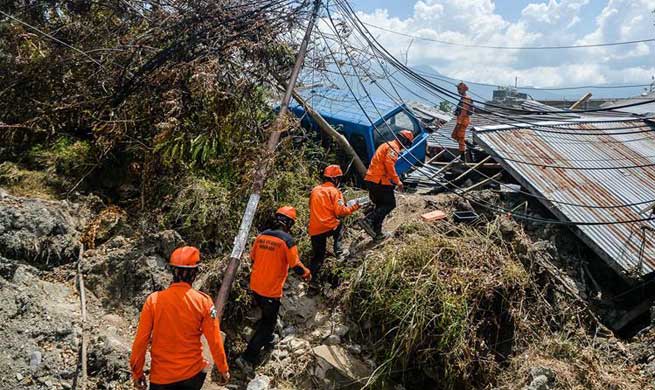SYDNEY, Oct. 1 (Xinhua) -- Young cancer survivors who struggle to focus on the later stages of their lives are at higher risk of poor mental health, pointing to a greater need to target treatments for this vulnerable group, according to latest Australian research.
"Cancer survivors' imagined future lives were still more illness-focused than their cancer-free peers, but survivors were less able to imagine their futures with this same degree of specificity and detail," Sydney's University of New South Wales researcher Dr. Ursula Sansom-Daly, who led the study, said in a statement on Monday.
"This inability to imagine future events in specific or detailed ways is likely to place young people at risk for poor mental health down the track, as the ability to imagine personal future events with a great degree of detail is a skill that is vital to effective problem-solving, for instance," said Sansom-Daly.
The study looked at more than 70 young cancer survivors and more than 60 young people who had never had cancer, examining whether aspects of "autobiographical thinking", such as memories and imagining the future, were linked with young people's current distress and quality of life.
People who are less able to remember their personal past in clear, detailed ways, and cannot imagine personal future events in similarly detailed, vivid ways, are more at risk for disorders including clinical depression, post-traumatic stress disorder and complicated grief, said Sansom-Daly. The latest findings were published in medical journal Psycho-Oncology.
"It is possible that young cancer survivors who have recently experienced life-threatening illness may avoid thinking about their futures in great detail because this is anxiety-provoking to them.
"Our findings suggest that helping young cancer survivors to learn to imagine their future lives in detail-rich ways may be protective against future distress."
It was important to try and understand which young people may be most at risk for severe distress following cancer, so that intervention efforts can be most effectively targeted at those most in need, according to the researchers.

















